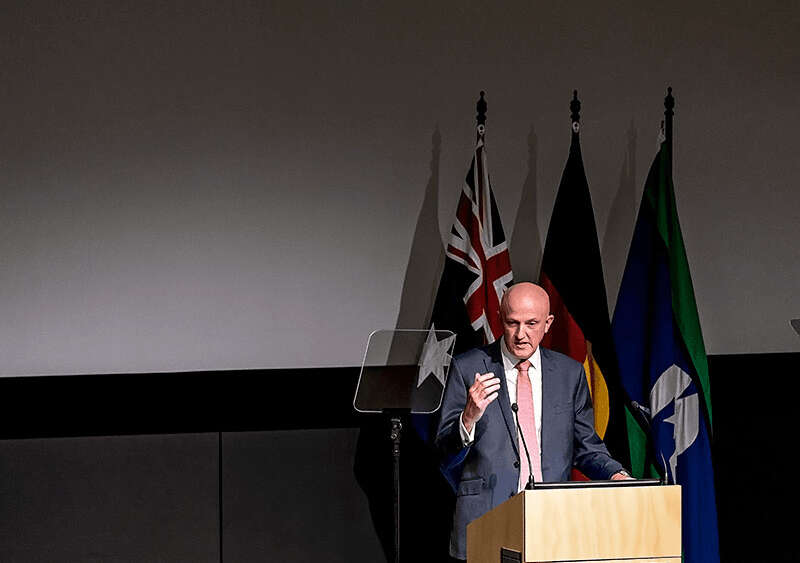Valid reasons for ASIO to redefine religious terrorism, says political theologian
This week’s changes to ASIO’s language – moving from labelling extremism as either Islamist or right-wing extremism to religiously-motivated or ideologically-motivated violent extremism – is warranted says an Australian political theologian. (Political theology is the study of the intersection between religion and politics).
Dr Jonathan Cole, who holds a PhD in political theology, an MA in Islamic theology and Middle Eastern politics, and writes on the intersection of politics and religion, has previously worked in Australian intelligence organisations. He says the agency’s shift in language won’t affect how ASIO works.
“When we’re talking about the language, we need to make sure we are aware that it’s not reflective of a change in the posture towards this type of terrorist threat,” he says.
But there are valid reasons for the change, he says, since the nature of violent extremism has changed over the last decade, and broader descriptions may help the agency’s intelligence work in the community.
“Language isn’t irrelevant because of the level of cooperation it leads to.”
There are violent individuals and groups in Australia that may pose a risk to life that do not fit neatly on a left-right spectrum, nor are they inspired by Islamist ideology. As noted by ASIO Director General Mike Burgess in his Annual Threat Assessment earlier this week, “they’re motivated by a fear of societal collapse or a specific social or economic grievance or conspiracy.” These groups include violent ‘incel’ (involuntary celibate) organisations and individuals which may pose a serious threat to life, ASIO says.
So, the new terms shift the focus away from the identity of the groups themselves, and focus on their specific support for violence, which is the work of the agency.
“We don’t investigate people because of their religious views,” Burgess said. “It’s violence that is relevant to our powers—but that’s not always clear when we use the term ‘Islamic extremism’.”
Dr Cole says that these new terms will change little within the organisation, given that it will still focus on identifying threats to Australian security.
But there is another, more societal benefit to the changes, says Dr Cole.
“ASIO does a lot of work with the Muslim community in Australia,” he says. “ASIO really depends on the level of cooperation from the Muslim community when they prosecute what they’re now going to call religiously-motivated violence,” he says.
“And that’s because the very first people usually who can detect radicalisation or changing behaviour [in people who commit acts of violent extremism] are family members or community members, who attend the same mosques as them, for example.”
“Language isn’t irrelevant because of the level of cooperation it leads to.”
“There is a wider consideration here, because Australia is a multicultural society. So really, there’s no tactical benefit from a security point of view, but unnecessarily aggravating tensions in a community where a unique threat resides is not wise.”
Dr Cole is very careful to point out the difference between Islam, Islamist theology and Islamist extremism. Islamist theology concerns the politically-active form of Islam that believes the faith should play a role in public life. This view is held by a significant proportion of (but not all) Muslims, but is difficult to conceptualise in a society where there is such a stark division between the ‘sacred’ and ‘secular’.
The challenge, then, with Islamist extremism (which is an even smaller group within Islamist theology) is that religious and political or “ideological” motives cannot be so easily divided.
“Islamic theology and law goes deep into areas that in the West would be considered secular,” he says. “There’s a mistaken notion that there is some difference: there’s this thing called religion, and then there’s this other thing called politics.”
In October 2020, ASIO’s Mike Burgess said that right wing extremists now represent between thirty and forty per cent of ASIO’s priority caseload. Yet the biggest threat to Australian security continues to come from Sunni extremists, inspired by extremist groups overseas, ASIO said in its 2020 annual report.
Email This Story
Why not send this to a friend?


